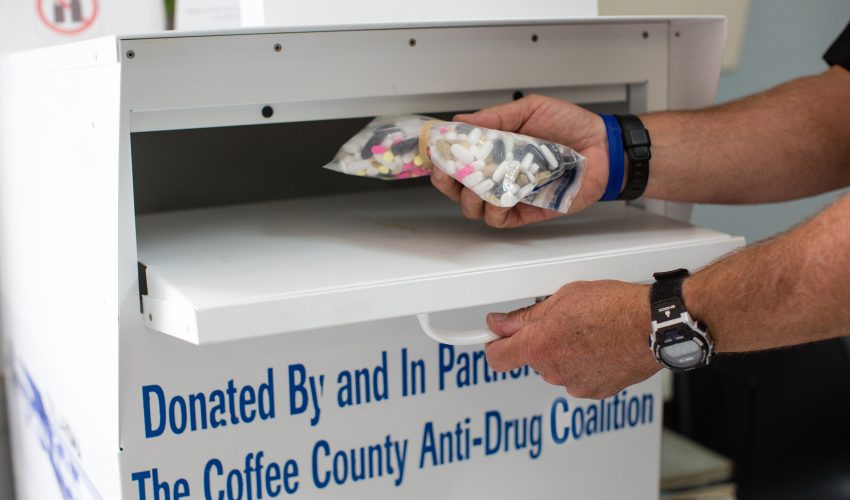Opioid abuse and misuse is a national concern.
But few states feel the effects as acutely as Tennessee, where:
- Deaths due to prescription painkiller overdose rose to a record-setting 1,263 in 2014 — more people than were killed in motor vehicle accidents.
- Babies born with neonatal abstinence syndrome due to opioid use rose 9% from 2013-2014.
- 143 prescriptions are written for every 100 residents, making Tennessee 2nd in the nation for opioid prescribing.
The statistics challenged BlueCross BlueShield of Tennessee CEO JD Hickey to bring together the company’s resources to turn the tide on the opioid epidemic.
Linking arms across the state
Impacting a public health issue of this magnitude requires moving outside of what most people see as the normal scope of a health plan.
This means taking a multifaceted approach:
- Policy changes on opioid prescribing and dosages
- Provider education to curb aberrant prescribing patterns
- Community impact and education about safe disposal of medication
“We’re at the table with the Department of Health, law enforcement and others from the clinical community to be part of the bigger solution,” says Dr. Andrea Willis, BlueCross Senior VP and Chief Medical Officer.
The BlueCross efforts are guided by an advisory panel of health care providers and experts across the state.


Programs designed to reduce prescription drug misuse are growing — and working — across Tennessee.
Effecting change where pen meets paper
With more than 1 million opioid prescriptions covered by BlueCross in 2015, implementing new guidelines on prescribing was a natural starting point.
The initiative places additional limits on quantities that can be prescribed.
It requires important information be discussed with the patient, including a treatment plan, before a provider writes a pain medication prescription.
BlueCross also uses its medical and pharmacy data to identify providers who appear to be prescribing painkillers at higher rates than statewide benchmarks.
BlueCross then shares that data and evidence-based best practices, to guide those providers toward more appropriate prescribing patterns.
“These steps focus on the pen-to-paper piece of prescriptions,” says Natalie Tate, BlueCross VP of Pharmacy Management.
“We are working with practitioners to make sure that what is prescribed is the best care for a patient’s needs while reducing the risk of misuse.”

“Girls like me aren’t addicts.” Read Sheryl’s story of addiction and recovery by clicking her photo.
Curbing misuse and abuse
Fighting the effects of addiction has been a key focus of the BlueCross Health Foundation for years.
Programs supported include:
- Neonatal Abstinence Syndrome treatment unit at East Tennessee Children’s Hospital — $1 million
- Mothers & Infants Sober Together (MIST) — $290,456
- Substance abuse treatment programs in Memphis, Chattanooga, Nashville and Knoxville — $275,000
- Count It! Lock It! Drop It! — $1.3 million
[Pictured at top: Dr. Andrea Willis, senior vice president and chief medical officer; Dr. Natalie Tate, vice president of pharmacy management; and Dawn Abel, former BlueCross Health Foundation director]
The post Being Part of a Bigger Solution appeared first on Better Tennessee.

